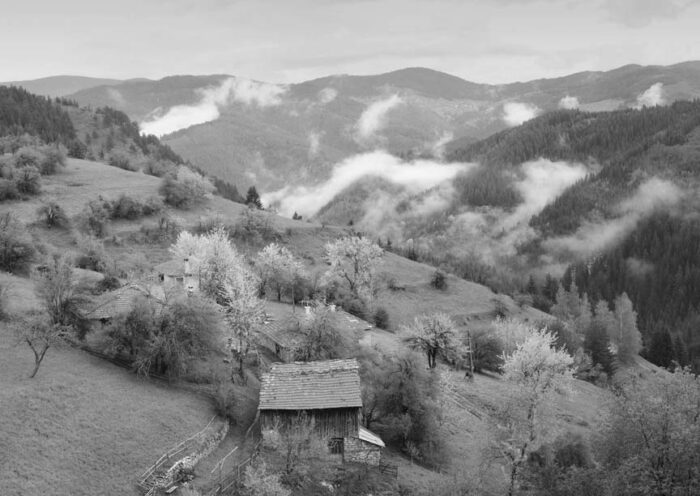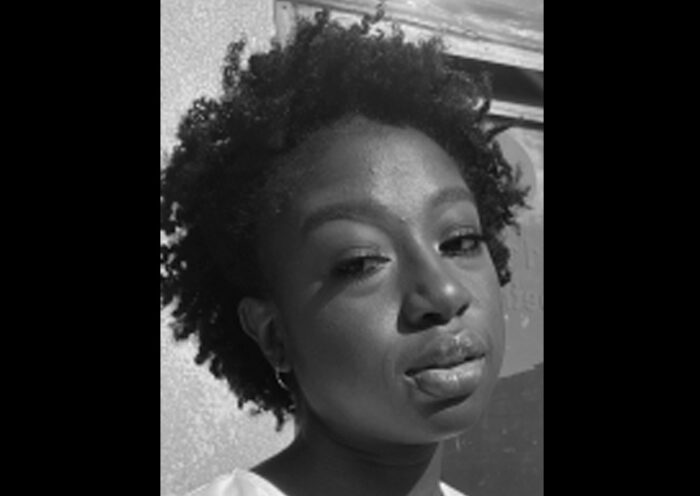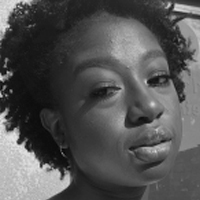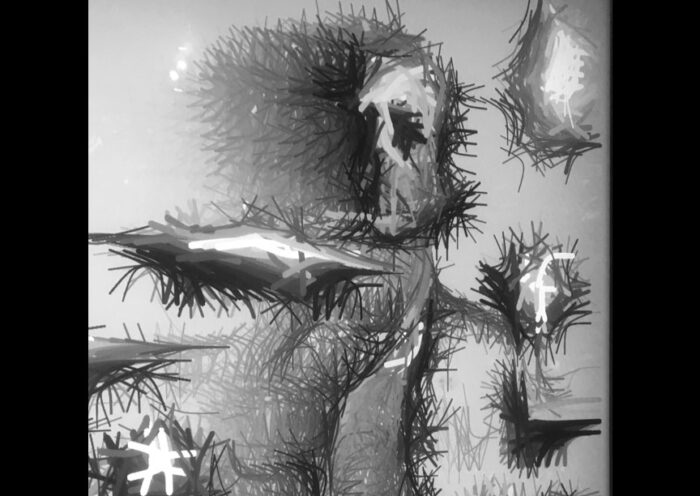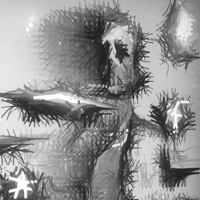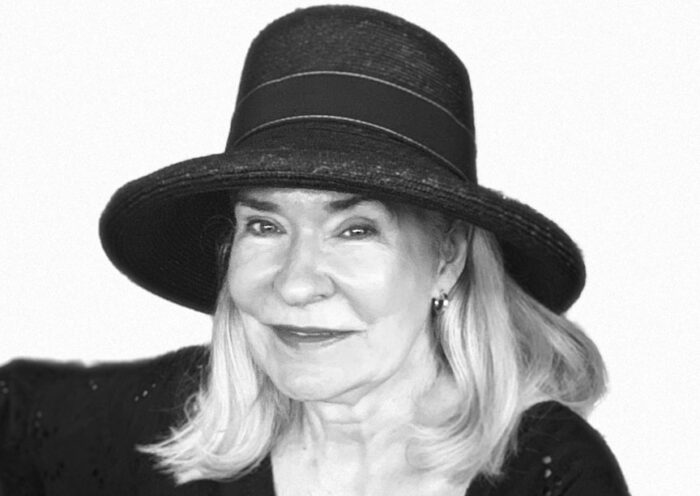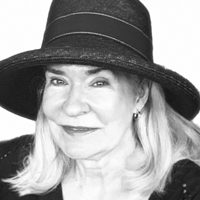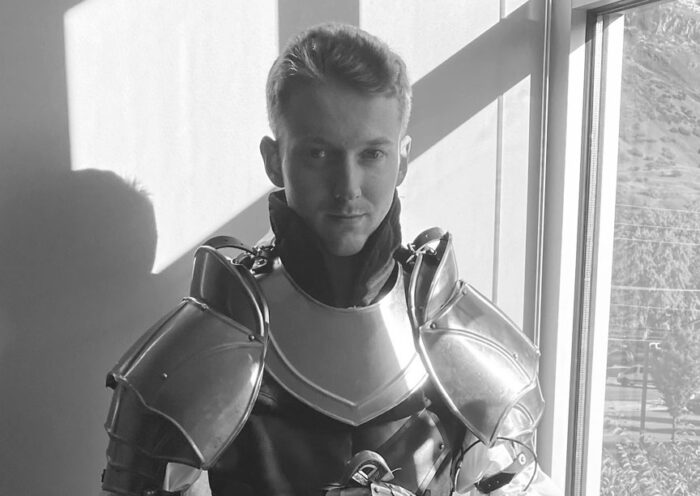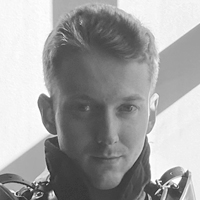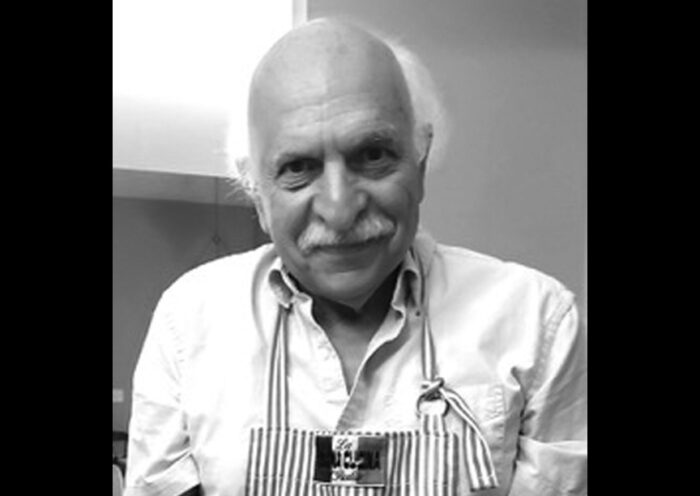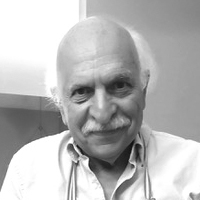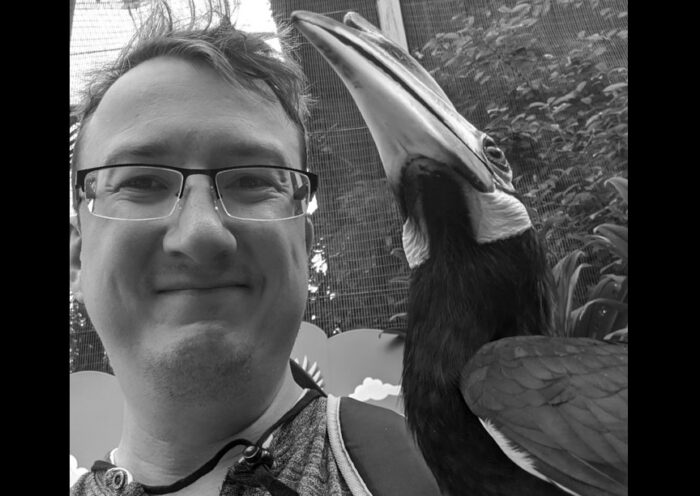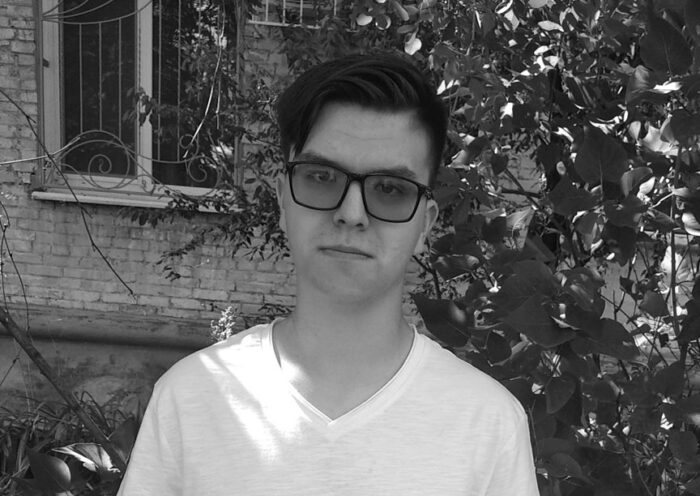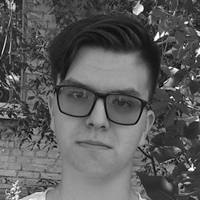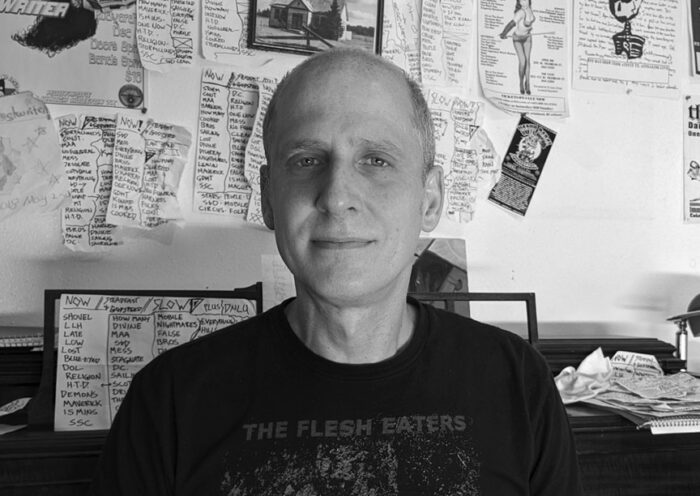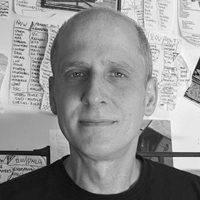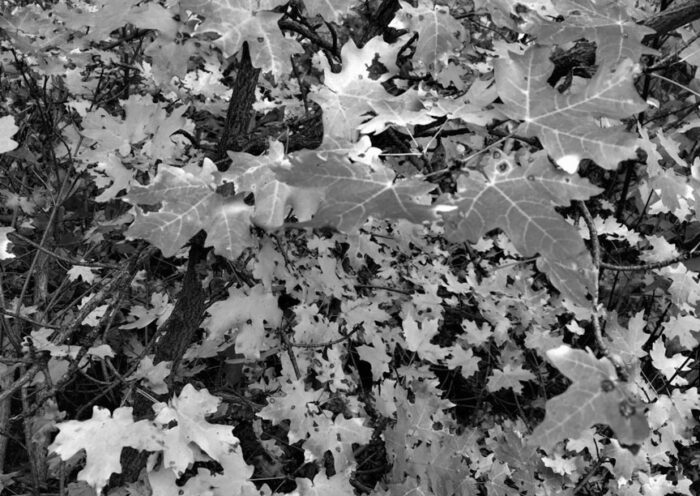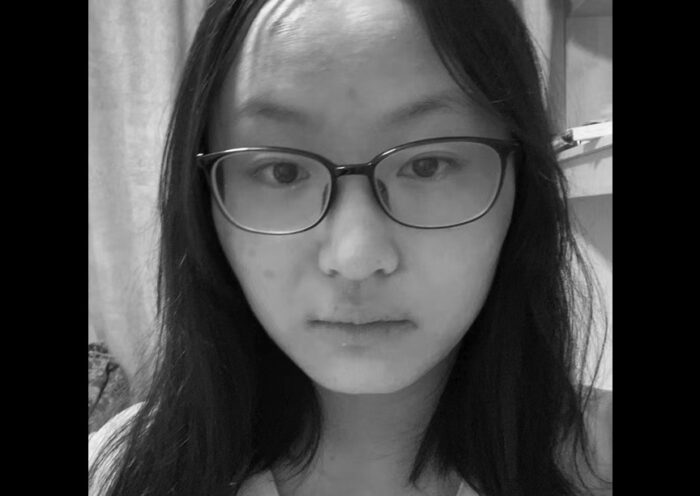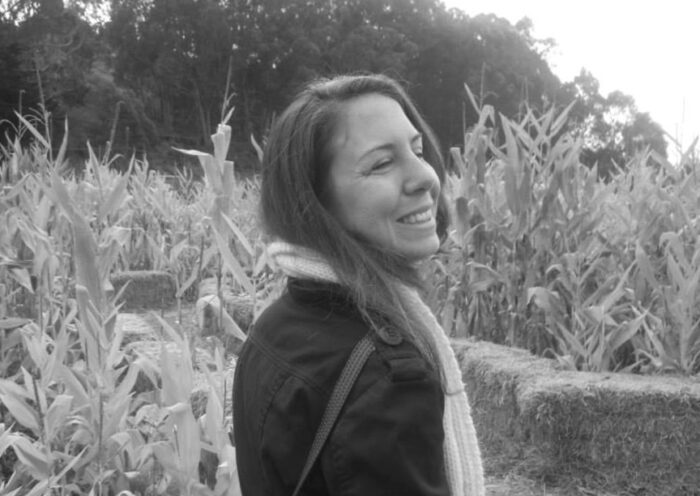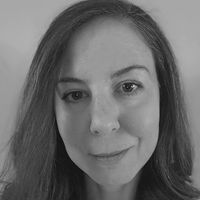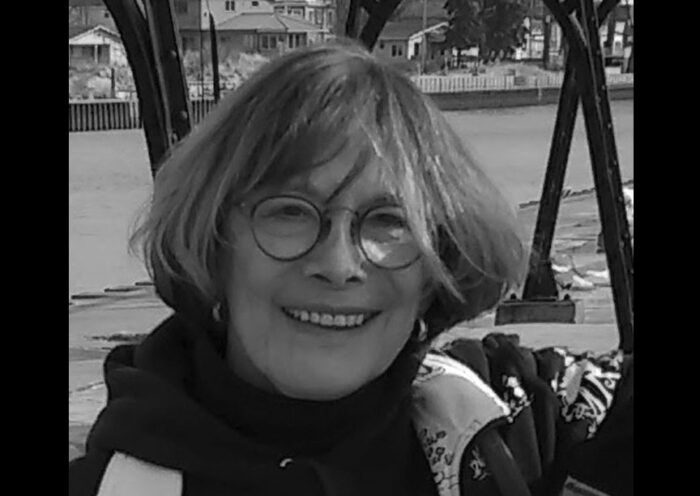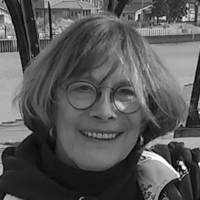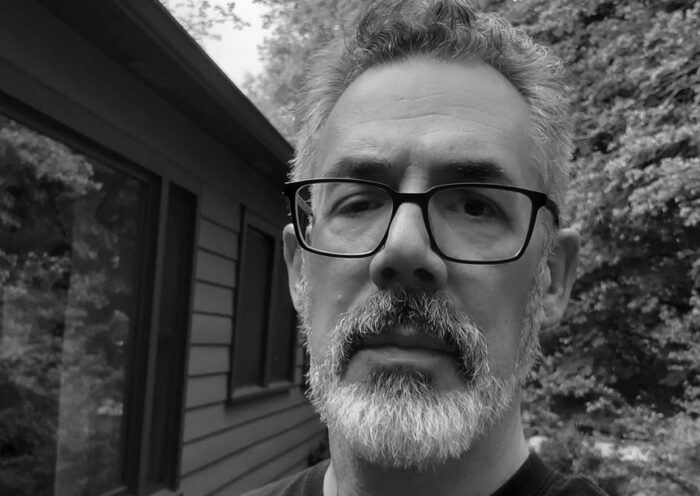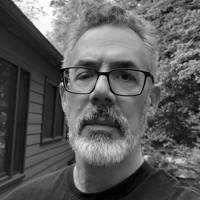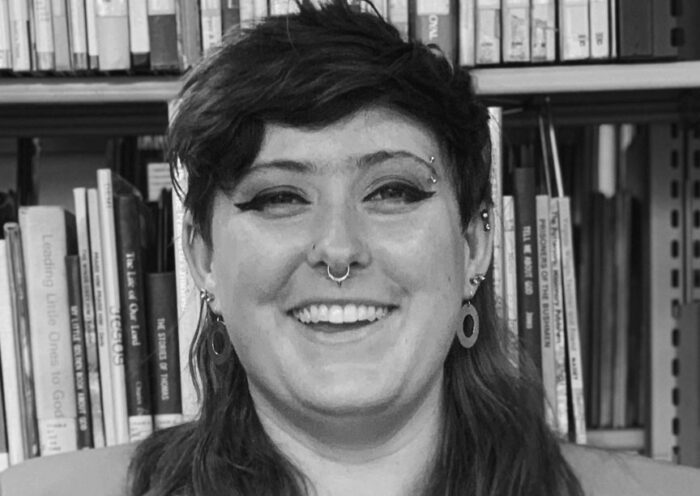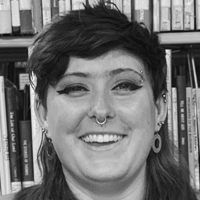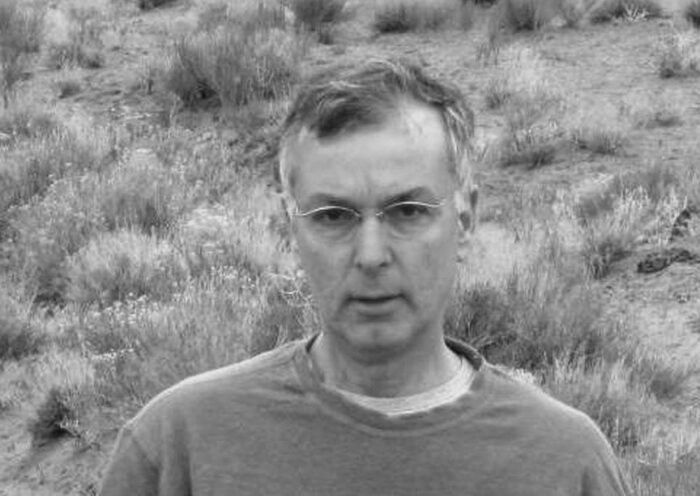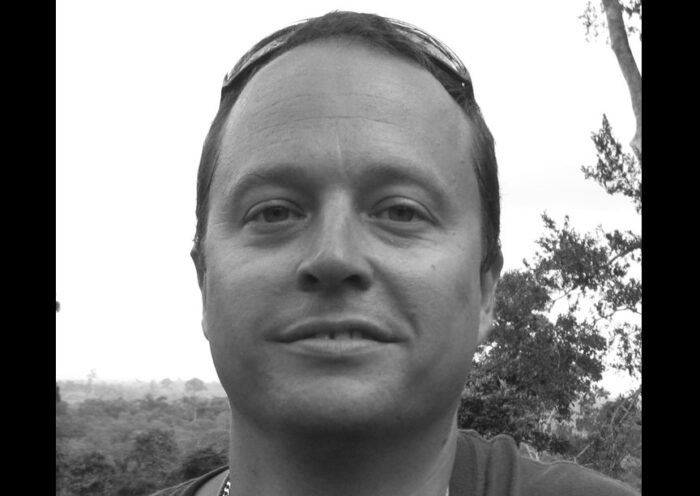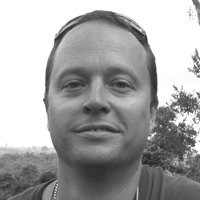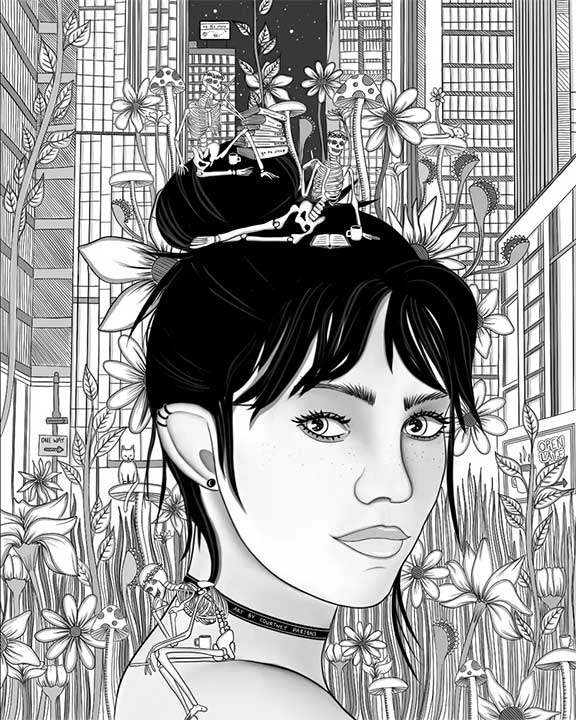Forgiveness
By Ellis Shuman
The village was nestled in green foothills not far from the Greek border. Quaint wooden farmhouses and ramshackle barns. Cultivated fields of summer crops; fenced-off pastures spotted with dairy cows and goats. Grassy meadows bordered by colorful wildflowers. In the distance, snow-capped peaks below a cloudless blue sky. The Rhodope Mountains, scenic and bucolic, home to some of Bulgaria’s oldest citizens. One of them was waiting to see me.
“My grandfather is ninety-five-years old,” Anna reminded me as we drove south on the narrow highway. “He’s half blind, walks with a cane, and doesn’t hear very well, but he still has his wits about him. He rises at the crack of dawn to milk his cow and tends his vegetable garden in the afternoons. And he eats a lot of yoghurt,” she added with a laugh.
“I can’t believe I’m here, that I’ve flown all the way from Tel Aviv just to meet him.”
“Well, it’s good you came. He’s very eager to see you.” Anna continued to talk excitedly as she drove, but I remained mostly silent, keeping my eyes focused on the beautiful countryside.
I was looking forward to meeting him as well, but I had a growing feeling of trepidation ahead of my visit to his home. Why had I come to Bulgaria? Had I made a mistake? Was I on a wild goose chase that would make me a laughingstock when I returned to my office in a few days’ time? I shook my head, shocked at my impulsive decision to come.
Anna slowed down when we passed the sign announcing our arrival in Gela, the village that was our destination. A minute later, she parked the car. I got out, took a deep breath of the fresh mountain air, and followed her up a gravel path towards a wooden farmhouse that had seen better days. We took off our shoes outside the door and went inside.
It took several minutes for my eyes to fully acclimate to the dark interior. Outside it was a warm June day, but inside the farmhouse I shivered. The unlit fireplace at the side of an open kitchen brought up images of roasting logs. The Rhodopes were ski territory, I had learned. Visions of snow-covered slopes brought back memories of the ski trip I took with friends after finishing my compulsory service in the Israeli army.
“Sit here,” Anna said, pointing at a low bench near the dining room table. “My mother is probably shopping in Smolyan. I will see if my grandfather is awake.”
I sat down and looked around the rustic, homey room. Watercolor paintings of green landscapes hung on one wall; a window opened to real-life vistas of the same. All the furniture was wooden, apparently homemade. I rested my hands on a colorful embroidered tablecloth, kicked my backpack under the table, and fidgeted as I waited for Anna’s grandfather. All I knew was that he had something to give me, and I didn’t have a clue what it could be.
* * *
I had never been to Bulgaria before, had never considered visiting the country. Although I traveled extensively for my Internet software company, organizing trade exhibitions at conferences in western Europe, North America, and once in Japan, Bulgaria had never been on my radar, neither for business nor pleasure. Bulgaria? Never in a million years did I consider traveling there.
This journey came about after I responded to an email that should have gone straight into my junk folder. The mail, which had been scanned and posed no threat to my computer or the network, appeared among the many messages that demanded my attention one morning at the office.
“My grandfather knew your grandfather—Avraham Levy,” an unfamiliar woman claimed in the mail. “In fact, they were best friends at university. My grandfather, Aleksandar, is getting old and wishes to see you before he dies. He needs to give you something.”
Convinced this was a prank, a scam or scheme to get me to transfer funds to an overseas hacker, my finger prepared to delete the mail forever. But I hesitated. The mention of my grandfather by name raised my curiosity. The mail seemed harmless enough. It wasn’t as if I was going to click on any suspicious links. If this unknown woman—she signed her mail as Anna Todorova—asks for money or help of any kind, I will block her account, I told myself.
This is what I know about my grandfather. He was born in Sofia, Bulgaria, but came to Israel shortly after the establishment of the State. He settled, like so many of his compatriots, in Jaffa, a town later incorporated into the Tel Aviv municipality. It was in Jaffa that my grandfather met and fell in love with Maria, the beautiful waitress who would serve him coffee in the late afternoons. The couple married and moved to Na’an, where they were accepted as members of the kibbutz. I never knew my grandmother Maria because she died when I was an infant. My grandfather remained alone in his sparse apartment, a virtual recluse who I only saw when my family visited on the occasional weekend and holidays.
It’s been ten years since my grandfather passed away and as far as I could remember, he never once spoke to me of his childhood, or of growing up in Bulgaria.
I wrote a quick response to the woman, and she responded in turn. Correspondence followed, at first once every few days, but then on a daily basis. Anna lived in Sofia, she explained in her mails, and worked as a dental technician. She was, I would learn, a very educated woman who spoke several languages. Her husband served in the traffic police, and they had three children. Anna didn’t like living in the city, she informed me, and that was why she came to the mountains whenever possible to see her mother and grandfather. Her husband said the countryside wasn’t for him. The children, Anna said, preferred to remain in the city, to meet friends, attend soccer practice, and socialize in the malls. Much like their counterparts in Israel, I realized. Anna shared personal anecdotes in her mails, easing my original hesitation about answering her.
Little by little, I began to trust Anna. I became convinced she was telling me the truth. There was an elderly man in a Bulgarian village who wanted to see me. He had once been a friend of my grandfather, and I assumed he had some memento from their friendship to give me. I was about to learn what it was.
* * *
A noise behind me made me turn around. Anna led a spry old man into the room; by no means was he feeble or unsure on his feet. Ninety-five years old, but he looked healthy, more fit than I would have imagined. He shrugged off his granddaughter’s arm, balanced himself on his cane, and extended his hand towards me. Anna translated his greeting.
“He said you look just like Avraham.”
Before I had a chance to reply, Aleksandar asked a one-word question, and this seemed to embarrass Anna. I waited for her translation but she hesitated.
“What did he say?”
“He asked if you were a Jew.”
I rose to my feet, fearful I was about to be attacked with a vitriolic outburst of antisemitism from a senile old man, but Anna urged me to sit back down. She listened to her grandfather for several minutes and then turned to me.
“He said that if you are a Jew, it is good. It means his invitation has gone to the right person because his friend from long ago, Avraham, was a Jew. And it is only to a Jew he wishes to speak, to state his heartfelt plea for forgiveness.”
“Forgiveness?”
At that moment, Anna’s mother returned from her shopping. Anna helped unpack the groceries and the two women set out a spread of salads and cold meats on the table. As for Aleksandar, he sat on his wooden chair, stomping the floor with his cane, regarding me with a knowing look. I enjoyed the food, but the only thing the old man ate was a thick, yoghurt-based drink.
“What is it that your grandfather wishes to give me?” I asked impatiently, handing my plate back to my hosts at the end of the meal.
Anna nodded at Aleksandar, and he raised himself slowly from his chair. He wobbled across the room to a wooden breakfront, opened its top drawer, and took out a cardboard box. Inside was a pile of envelopes, tightly bound by a thin blue ribbon. He extended the box to me.
When I didn’t immediately reach for the box, Anna coughed, took the box from her grandfather’s hand, and undid the ribbon.
“What is this?”
“Letters,” she replied. “Letters your grandfather wrote.” When she saw my confusion, she explained. “This is what my grandfather wanted to share with you. They are written in Bulgarian but I will translate. This is my grandfather’s wish.”
“I came all this way for some letters? You could have mailed them to me!”
“He insisted you hear them in person. He’s an old man. How could I refuse him? Especially when this concerns your grandfather. These letters were written during the war, when your grandfather was in the camps.”
The camps? Auschwitz? Treblinka? My heart sank. My grandfather never said anything about being in the camps; my mother had never spoken of this either. I had grown up in a country where memorializing the Holocaust was institutionalized on our annual calendar. It was a subject forced upon us in school. We read books about the Holocaust; watch television shows, plays, and films on the subject; but the Holocaust had no real meaning for me.
Until now.
Learning that my grandfather was a Holocaust survivor was a shock. My heart beat rapidly as Anna pulled out sheets of paper from the first brown envelope. She began to read.
July 24, 1941
My dear Aleksandar,
It has already been many years since we were boys, racing one after the other on the streets of Sofia. I remember chasing after our classmates in the schoolyard, and in the winter months, throwing snowballs at the trams. We were young then, good friends.
“Wait a minute,” I interrupted. “I thought our grandfathers studied together at the university. They also knew each other when they were boys?”
“Let me explain,” Anna said, lighting a cigarette. She smiled at her grandfather, who didn’t understand a word of what we were saying. “My family’s origins are here, in this village. We have lived here for generations. Aleksandar’s father, my great-grandfather, was a wise man, a modern man. He wanted his son to get an education, to have a real profession. To become someone more than a simple Rhodopes farmer. He sent Aleksandar to live with relatives in Sofia, and he grew up there. He attended school in the city and that is where he met and befriended Avraham Levy, your grandfather.
“These letters were your grandfather’s way of recording his family history, of retaining their friendship. Let me continue.”
I remember when we passed by the Great Synagogue on our way to school each day, how envious you were that I had a connection to that magnificent building. Although I am of the Jewish faith, I wasn’t familiar with what happened inside. My family celebrated Rosh Hashanah and Passover with festive meals, but we didn’t observe the Sabbath. Even at my bar mitzvah, when I was thirteen, the words that came out of my mouth at the rabbi’s instructions were not words I understood. Still, you were jealous. You had no religion, you claimed. You believed that through that synagogue, that fine building, I could speak to God and he would listen.
At school, I was the only Jew in our class. But this mattered little to the other boys. They only teased me because I was slightly underweight. They called me names, but you were always on my side, protecting me from their curses and fists. Those incidents were few and far between, and they ended when I finally gained some weight.
When we were growing up, no one cared I was a Jew. My family was as Bulgarian as the next. We were treated no better, or worse, than our neighbors.
I remember going to the parks with you on the weekends, traveling on school excursions in the mountains. Do you remember when we went by train to your cousins in Varna? To the beach on the Black Sea shores? Those were good times, when we didn’t have a worry in the world.
Good times, indeed, before darkness fell on Europe.
Do you remember the Olympic Games in 1936? We were, what, sixteen then? That was the year Hitler paraded his Nazi pageantry on the world’s stage. Despite calls for a boycott, all the nations competed, marching into the stadium while banners high above their heads bore the hated swastika. Only one foreign leader attended the games, if you recall. It was our leader, our beloved king, our czar. Boris. He was at Hitler’s side and all the world applauded. Bulgaria did not win a single medal at those games, but we were so proud. Boris stood on that podium with the leader of our great ally.
“Bulgaria sided with the Nazis?” This came to me as a surprise.
“Yes, did you not know? We were allied with Germany, and our wartime government was pro-Nazi. In Bulgaria, we have always lived peacefully side by side, Christians and Jews, and Muslims too, but during the war, anti-Semitic, fascist rulers came to power here. During those years, the vast majority of our citizens held Boris in esteem for how he conducted his affairs, for siding with Hitler.”
“This sounds very much like a history lesson.”
“I am trying to give you background and context to your grandfather’s letters. Without the complete history, I don’t think you would fully understand this story.”
When we started university studies in Sofia, you wanted to become an engineer. To do something practical with your hands. To prove to your father that it had not been a mistake to take you from the Rhodopes and send you for an education. As for me, I studied philosophy. I wanted to do something with my mind! We may have attended the same school, but our lives veered off in different directions.
Do you remember my sister, Ester? You said you fancied her, but you never told her. Well, let me reveal a secret. She fancied you as well! She said you were handsome, with a head of hair like one of those Hollywood stars you see in the movies. When you would come to our house on Stamboliyski Street for dinner, you made her laugh, but she was too embarrassed to say anything. And you never approached her.
Ester, my great aunt. She had died long ago, had never come to Israel. Ester was listed on the family tree I created as part of my bar mitzvah year’s ‘roots’ project, but except for her name, I knew nothing of my grandfather’s sister. Now I was hearing a firsthand account from my grandfather about his family.
Things took a turn for the worse. More and more students harassed me because of my religion, calling me names, and even physically accosting me. The professors turned their heads; they couldn’t be bothered. I didn’t know if they were afraid to stop these attacks, happening right under their noses, or if they secretly held me in disgust as well.
The war started, and at first, it didn’t concern us. Germany invaded Poland; the Russians were on the move; Britain and France declared war on Hitler. In Bulgaria, we felt safe. Even us of the Jewish faith. We heard how our people were being treated in Germany, but in Bulgaria nothing would ever happen to us. After all, we were Bulgarian citizens!
It was around that time that Bogdan Filov was appointed prime minister. Later that year, Parliament approved the LPN, legislation which was also endorsed by Czar Boris.
“LPN? What’s that?”
“I think you call it ‘Law for the Protection of the Nation’,” Anna said. “It was very similar to the Nuremberg Laws in Germany. You will understand more about the LPN when you hear what your grandfather wrote.”
Aleksandar, you of course know of the LPN because you read the newspapers that serve as the government’s mouthpiece. Yet, I am not sure you know how the LPN affects me and my family. I will list the government’s decrees for you, but also so that I can make some order of them.
There are restrictions where Jews can live, in what professions we can work. Limits are imposed on how many Jews can study in higher education. They forced me to leave my university studies!
We are obliged to wear yellow stars on our outer garments. Restaurants put up notices reading ‘Entrance Forbidden for Jews’. There is a curfew.
Jews are required to pay special taxes. We must declare what valuables we possess, even furniture and carpets. We are not allowed to own property. Our radio set was confiscated!
My mother was sure nothing would happen to us, but my father realized this was not true. Wisely, he sold our family’s linen factory to our neighbor, who bought it for a pittance, promising to return it to us when things got better. My father wanted to send us away, to America or even to Palestine, but my mother refused to leave. Ester was engaged to be married by then. We didn’t want to leave Bulgaria, our home.
One night, the police showed up at our door with papers bearing my name. All the Jewish men in our neighborhood between the ages of twenty and forty were ordered to go with them. I hurriedly packed a suitcase, bade farewell to my parents and to Ester, and followed the police into the street.
I remember leaving with them that evening, the future uncertain. Going with them to the camps.
“Your grandfather’s Bulgarian is excellent,” Anna commented. “Some of his words are—how do you say it—a bit flowery. So unlike how my grandfather writes.” She put down the letter and lit a cigarette. “I apologize if my English is not of the same level. It’s challenging to translate as I read.”
“Your English is just fine,” I assured her. I picked up the letter from the table and stared at the handwritten words. Indecipherable Cyrillic script. The text was small, smudged in some places. Holding the letter, I felt a physical connection to my grandfather. When was the last time I held his hand? I missed him and felt sorry I wasn’t aware of his past.
Aleksandar sat in the corner, attentive to our conversation although he didn’t understand it. The rest of the letters would have to wait until the next day, I told Anna, because I was exhausted. Exhausted and overwhelmed by everything. The hurriedly planned trip to Bulgaria and the revelations about my grandfather’s life were taking their toll.
“Let me show you to your room,” Anna said when I stood up.
“Perhaps it’s best if I stayed in some hotel nearby?”
“I told you, there is nowhere else to stay in the village. We have a spare bedroom and I think you’ll find the bed comfortable. I’m tired myself. It’s been a long day, and I spent much of it driving. You’ll sleep here. It’s not even a question!”
As tired as I was, my mind remained fully awake. Hearing what my grandfather had written long ago to someone who had been his contemporary, his friend, was as if I was stepping into the past, into an unfamiliar and terrible era. I tossed and turned, wondering why my mother had never told me her father’s story. When I talked with her in the morning, I would find out.
I realized what was troubling me more than anything else. I was about to hear the story of my family during the Holocaust. The Holocaust, when six million of my people had been murdered. The Holocaust was about to get personal.
To learn that my grandfather had been discriminated against because of his Judaism; that he had been dragged from his home by the police and sent to the camps—it all came as a shock. There were many more letters in the box. I feared the worst was yet come.
Why had my grandfather written these letters? Why was it so important for him to tell his friend of his experiences? I believed my grandfather feared he would not survive the war. He felt compelled to document everything that happened.
But wait! My grandfather was a Holocaust survivor. He came to Israel. There was a happy ending to his story. Or was there?
That question ran through my head before I fell asleep at last.
* * *
August 11, 1941
My dear Aleksandar,
I have yet to receive a response to my earlier letter. You enlisted in the army, serving our country, and I respect you for that, but surely you have time to reply? I wait anxiously to hear of your experiences.
I am here in the labor camp. We are in the south, near the village of Belitsa. There are many of us, perhaps a few hundred. Jews from various towns; the majority are from Sofia. There are Jews from my neighborhood and others who I would see occasionally as they went to the synagogue. They divided us into different work battalions constructing the railways. Each unit has its platoon supervisor, a Bulgarian army officer. Our unit has a very cruel supervisor. A man my age from Plovdiv. We call him ‘Red’ because of the color of his beard. His army service was cut short because of his asthma; even now he wheezes when he shouts. Red humiliates us; he hits us; he kicks at us and beats us with a stick. He barks orders at all hours of the day. He punishes us for the slightest offenses. He calls us anti-Semitic names, names I never heard growing up with you in Sofia.
The labor is intense, with much physical effort required on our part. We work under the harsh sun, but also in the cold and rain. We haul wagons of stones from the excavation pits, where we are laying the tracks. We shovel dirt and raise our pick axes again and again. Twelve hours a day we toil, struggling to meet a quota measured by wheelbarrows of rocks. When we meet our quota, they give us something else to do. Usually we have Sundays off, but frequently this privilege is taken from us.
Beans and lentils are provided for our meals, also half a loaf of bread each. Occasionally, we receive a dessert of rice with water. That comes to us as a luxury. At night, we bandage our blisters, rub our aching muscles, and fall asleep on our cots at once.
It is hard here, but bearable. I miss my parents, my sister. Often, I think of you, and hope you will soon reply.
Your friend,
Avraham
“This was a Bulgarian labor camp,” Anna explained. I was relieved I was not hearing a report from Auschwitz. Not yet, anyway.
Throughout the morning, Anna read the letters my grandfather wrote during his stay in Belitsa. He described the poor conditions; the meager food portions; and the cold and damp barracks. Like the others in his labor battalion, my grandfather lost weight, although he built up his muscles from the strenuous work. My grandfather informed his friend, Aleksandar, that despite the tough physical regime, his spirit remained strong.
Hearing of these experiences was difficult for me. I was troubled by what my grandfather had gone through. But then my mood lifted when I heard his next letter.
I should mention one thing, so you will not think everything in Belitsa is bad. After we dug the pits so deep that when we were working, we could not be seen from above, Red gathered us around and declared, ‘Fellow Bulgarians, you have worked so hard and faithfully, that I now trust you. From this day forth, I will protect you.’
After that, everything changed. Red no longer called us names, no longer struck at us, no longer swore. In the heat of the day, Red would tell us to hide in the pit’s shade. When the camp’s commander came to inspect our work, Red whistled and we would pick up our axes and shovels. We would start working very hard. And when the commander left, Red let us return to the shade. I am not sure whether Red felt guilty for his earlier actions or if he had an affinity for his Jewish countrymen. Maybe he originally wanted to show his commanders how true he was to the fascist cause. In the end, Red became our friend!
I must tell you a story. There is a Jewish army officer in the camp—Shapira is his name. He served in the Bulgarian Army during the First World War. While we toil every day clearing roads through the forest, Shapira enjoys the good conditions of dining with the Bulgarian officers. He jokes with them, sleeps in their quarters. On some days, when Red is on leave, Shapira supervises our work shifts. We work as a Jewish crew with a Jewish supervisor. He is not strict about our work requirements.
And then one day, several German soldiers arrived at the camp. It is not clear if they came with a purpose, or if they were traveling to an army base in Greece. They approached Shapira and saw before them a decorated army veteran. The Germans saluted Shapira. He saluted back. Can you believe this? Germans saluting Jews in wartime Bulgaria?
We work; we sweat; we bear the weight of difficult days. But we are certain this period will end in a short time, and our lives will resume as they once were.
I do not give up hope. We will meet again soon, my friend.
* * *
When Aleksandar retired to his room for an afternoon nap, I joined Anna on a walk in the village. We passed by wooden farmhouses similar in construction to Aleksandar’s, and barns appearing to be on the brink of collapse. Down in the valley, I heard the clang of cowbells. I saw a farmer leading his herd to pasture. In the distance, the snow on the mountaintops sparkled in the sunlight. Everything was so serene, so tranquil, so distant from the hustle and bustle of the modern world.
“You know Gela is famous?” Anna said as we followed the path up the hillside.
“Famous?”
“Yes. Our village is the birthplace of Orpheus. Surely, you’ve heard of him. No? Well, I’ll tell you the story.
“Orpheus was a mythical singer, musician, and poet. Some say he was Greek, but he was born here, in Bulgaria. He is often pictured carrying a stringed lyre on his shoulder. He was married to a beautiful woman, Eurydice, but she was bitten by a poisonous snake on their wedding night. She was taken into the Underworld, and Orpheus followed. He wanted to ask Hades, the god of the Underworld, to allow Eurydice to return to the land of the living.
“To make a long story short, or rather a long legend, I can tell you that the entrance to the Underworld is not far from Gela. Have you heard of Devil’s Throat Cave? No? You should visit it while you’re here; it’s a popular site. According to the legend, Orpheus descended into the cave to demand that the gods release his beloved. He vowed that he, instead, would remain in the Underworld. The gods agreed, and the two lovers began their journey to the entrance of the cave. Orpheus looked back, to make sure Eurydice was following, but he saw only her shadow before she vanished. Orpheus emerged from the cave alone. He mourned Eurydice and never played the lyre again.”
“Interesting legend,” I remarked.
“Yes, and it all started here in Gela, and I don’t care what the Greeks say.”
“Anna, there’s something I want to ask you.”
“Yes?”
“These stories about the forced labor camps, and what your country did to the Jews—how much did you know of these events? Did they teach you this in school?”
“Not all Bulgarians are familiar with this story,” she said after a momentary pause. “I first learned about Bulgarian Jewry in high school. There were programs on television as well. Once the communists came to power, they distorted our history. What we heard was not exactly what had happened. Today, most young Bulgarians know little about the World War Two period, and that’s a shame.”
“Oh, one other thing. How did you ever find me?”
“Find you?”
“Yes. How did you know whom to contact and invite to Bulgaria?”
“My grandfather knew that Avraham had moved to Israel. From a distance, he tried to keep track of his childhood friend and he was heartbroken when Avraham died. A few months ago, he asked me to find Avraham’s daughter, or if not, his grandchildren. It took a lot of Googling to locate someone related to Avraham. You don’t know how many emails I sent until finally one reached you, and you responded.”
I wanted to ask her more, but Anna pulled my hand. “Let’s hurry back to the house. My grandfather will soon be awake. He will want me to continue reading Avraham’s letters to you.”
* * *
February 15, 1942
My dear Aleksandar,
I pray you are well. Did you receive my correspondence? Where is your army unit posted these days?
Much time has passed since I last wrote and what should I next tell you? We labored at the camp for many months, building the railway, but then they let us leave for a winter break. Back to our homes, and our families. I had taken ill in the camp, but I struggled along with my work battalion as much as possible. Red tried to protect me, to give me easier work assignments, but I was not the only one suffering from the labor. Being sent home was the best thing that could happen for all of us.
Last month, we returned to Belitsa. We have heard rumors about the camps in Poland, camps from which one does not return. But this is Bulgaria, our beloved homeland. Here we labor on behalf of our country. The camp commander is a fascist, but Red is on our side. He makes sure no one would ever harm us.
In the evenings, we sit in the barracks and raise each other’s spirits. We tell tales of our lives in Sofia, Plovdiv, and elsewhere. We reminisce about our childhoods, speak fondly of our families. We relate funny stories, we laugh. One of my bunkmates has a guitar and we sing.
Some have escaped the camp to become partisans and fight the government from the forests and mountains, but I prefer to remain with my newfound friends. We dream of better days and we know those days will come at war’s end.
When I was at home, Ester asked about you many times. I told you of her engagement, but the wedding has been postponed. Her fiancé was sent to a labor camp in the north. During the days of my illness, Ester cared for me, nursed me back to health. My parents spoke of you fondly. I anxiously await your letters for news about your army days!
* * *
“Imma, yes, I am still in the village,” I told my mother on the phone, although this was not exactly true. Anna’s mother had driven me down the mountain to a town where there was cellphone reception. I was using the Wi-Fi connection of a corner café. “I am learning so much about Saba, about our family’s roots. Why didn’t you tell me about his time in the labor camps? Did you know what he did during those years?”
“Saba spoke little about his childhood and even less of what happened to him during the war.”
“But why didn’t you tell me anything?”
“I wanted to protect you. Why should I share with you things that your grandfather didn’t want to share with me?”
I ignored her comment and asked instead, “Were you aware of friendship with Aleksandar?”
“Yes, but they did not remain friends. Something happened between them. I’m not exactly sure what it was.”
“All these letters Saba wrote, what a story they tell! Didn’t Saba keep any letters Aleksandar wrote in response?”
“I don’t know of any such letters.”
“And what about Ester?”
“Ester?”
“Grandfather’s sister. What happened to her?”
“The past is the past, and there are things it is better not to know,” my mother responded without further explanation. She quickly changed the subject and a short while later, the Internet connection gave out. It was time to return to the family’s home where Anna and Aleksandar were waiting.
* * *
I am uncertain whether you received all the letters I sent you out of great friendship. I hope my correspondence has not gotten lost! These days, one can doubt the efficiency of postal services in southern Bulgaria.
I wrote of my return to the labor camp at Belitsa, and of our continued construction of the railway. Of the tough challenges we faced, of our reliance on Red as our protector, of the outlandish demands of the camp commander. I wrote of our labor during the long summer days, and of how we rejoiced at the comradery in the barracks at night. I wrote of the rain, of the sleet, of the snow. Of the freezing nights when we shivered under our thin blankets.
I wonder how you are faring in the army, where you are serving. What do you do during the hot days? Where do you patrol during the wintry nights?
I wish you well, my dear friend. One day soon we will see each other again and renew the friendship we shared as young boys in Sofia and at the university.
Pausing only to catch her breath from time to time, Anna maintained a steady and pleasing tone of voice as she read. She was never at a loss for words, never stumbled over her translations. I was convinced she accurately presented my grandfather’s narrative and could not help but admire her for keeping her composure when reciting a very disturbing account of wartime events.
My grandfather wrote that he remained strong, physically and mentally. He had the stamina to persevere, he assured Aleksandar, no matter how difficult it was to toil away in the harsh conditions of the camp. He wrote of his deteriorating health, of his constant cough, muscle pains, and his chills at night. He wrote he felt lucky because many of the others had come down with malaria. Hearing his words, I realized that my grandfather’s spirit never wavered. He was resilient. He endured his ordeal with great fortitude. But throughout it all, it was surprising to learn that he retained a profound love for his homeland, even his respect for the czar.
I was about to suggest to Anna that we skip some of the letters because the narrative from the camp was becoming somewhat repetitious, but then she read a mail which changed everything for me.
June 6, 1943
My dear Aleksandar,
I hope this letter finds you well, and in good spirits. There has been a gap in my correspondence, and for this I apologize. I write to you now of the circumstances that took me far from the Belitsa camp. That period of my labor came to its timely conclusion. Instead, I am in Samovit, a small village sitting on the shores of the Danube north of Pleven.
Let me tell you how this came to pass.
I was allowed to leave the labor camp because of my constant cough. It was Red who arranged for my return to Sofia. He argued that my medical condition was dire, although this was hardly the case. He intervened with the camp commander and secured my release from Belitsa!
I returned to Sofia, but if I expected a return to the good times from the past, I was to be mistaken. The war was still raging and the reports we were hearing were grim. We didn’t have a radio, but our neighbor listened to Radio Berlin. He informed us of the declaration stating that the Jews of Bulgaria were to be deported. In compliance with government orders, the Jews of Sofia were to be taken to live in other towns and villages.
We did not leave Sofia without protest. We demonstrated, beseeching the government to allow us to remain in our homes. Many of our fellow Bulgarian citizens stood up for us. Christian writers and artists; merchants and clergy; lawyers and journalists. Our gentile neighbors and our friends. All of them demanded that the government reverse its decisions. The Jews were Bulgarian citizens, our loyal countrymen cried, but the czar remained silent.
I must mention two notables from the Orthodox Church who remain steadfastly opposed to the fascist government’s rulings. I wonder if you have heard their story. Metropolitan Stefan of Sofia offered to baptize any Jews who sought the protection of the church. And Metropolitan Kiril of Plovdiv confronted the czar, saying that if ever the trains come to take the Jews of Plovdiv, he would personally lie on the tracks to prevent such trains from leaving the station.
Few Jews, if any, volunteered for baptism, but the words and actions of these Church leaders are truly holy.
My parents and Ester are here with me in Samovit, and they express their concern for you nearly every day. Samovit is not a labor camp, but rather an internment camp. We are prisoners here, and our imprisonment is indefinite and absolute. Still, we remain hopeful, as always, and eagerly await our return to Sofia.
Aleksandar coughed, and Anna brought him a glass of water. The old man whispered to her and Anna translated.
“He again said that you look like Avraham.”
When Aleksandar smiled, I saw that two of his front teeth were missing; another one was capped in gold. I smiled back at him and turned my attention to the next letter.
June 10, 1943
My dear Aleksandar,
It is within the empty classrooms of a two-story red-brick school that my parents, Ester, and I are housed, along with hundreds of our coreligionists. Women and children, the elderly and the unfit. Among the detainees are leaders of Sofia’s Jewish community, well-known lawyers, judges, businessmen, and doctors—all men of high standing who lost their positions shortly after passage of the LPN.
Besides the Jewish detainees, Samovit is where the government incarcerates anyone considered dangerous to the security of the state. Opposition leaders, political activists, and writers who objected to the policies of Prime Minister Filov and his cabinet. There are criminals here, as well as those whose only crime is recent residence in a mental institution. Jews, communists, felons, homosexuals, gypsies, and the insane—we are all being held until further notice.
We sleep on mattresses on the classroom floor, some forty people in each room. Soldiers wake us at six in the morning and we follow them outside, even if it is raining heavily. We are given half an hour to visit the latrines. There is no electricity; no running water to wash one’s face; no showers or places to take a bath.
During the first two hours of each day, no food is served. When the morning meal is finally available, it is nothing more than a slice or two of stale bread and a lukewarm cup of tea. Lunch comprises more bread and a bowl of watery bean soup. Our meager meals are often supplemented with food brought to the camp by Christian residents of the nearby villages. Kind Bulgarian citizens making sure we don’t go hungry. Conditions are hard, but we survive.
Anna’s mother brought us each a glass of sweet tea and placed a tray of sweet pastries on the table. Anna picked up the next letter.
June 13, 1943
My dear Aleksandar,
No one knows how long we will be here, but most presume it will be until the war ends, whenever that will be. Our future is uncertain.
We know of Jews who were transported across Bulgaria on trains bound for Lom. They were sent on barges to Poland, to the Auschwitz camp where they were murdered by the Nazis. Mass shootings, or worse. From Samovit, we can see ships docked on the Danube. We fear this will be our fate as well!
Despite the harsh conditions, the threat of deportation, the fear of the fate that awaits us on the other side of the river, we have hope. We know many Bulgarians are working diligently to secure our release. Ordinary citizens and even some politicians.
Are you aware that Dimitar Peshev, the deputy speaker of Parliament, spoke out against the planned deportations? He demanded to meet officials at the Ministry of the Interior and with Prime Minister Filov. Peshev, a very brave and honorable man, acted on our behalf. Are there no other members of Parliament who will come to our aid?
And what of you, my friend? Where does the war find you these days? Where are you serving? Ester and my parents send their fondest regards and pray for your good health. I hope to hear from you soon, before they take us away from this camp. Before they force us to leave our beloved Bulgaria.
* * *
Dusk was falling, and lights flickered in the houses of the village. I was breathless after hearing my grandfather’s correspondence with Aleksandar. Learning that he was in an internment camp and about to be deported with his family and sent to Auschwitz made me shiver. I had a sudden urge to leap from my chair, run outside, and clear my head in the cool mountain air.
“There is one more letter,” Anna told me. “Should we read it now?”
“I don’t know if I am ready for another letter. Maybe we should put it off until morning.”
“It is not from Avraham. It is from my grandfather,” she said, pointing to Aleksandar, who had dozed off in his chair.
“But what about my grandfather’s parents and Ester? What happened to them at that camp? Did they get sent to Poland? He must have written something more.”
“I think you need to hear my grandfather’s letter,” Anna insisted. “It is the only letter he ever wrote in response to Avraham. You are returning to Sofia tomorrow for your flight back to Tel Aviv. This last letter will give you closure; it will make you understand what happened to your family and why it was so important for you to come to Bulgaria and hear everything in person.”
There was no way I could ever get to sleep after hearing that introduction. I took a long sip of water and nodded to Anna.
My dear Avraham,
I am writing to you in response to your many mails. I am not a man of words like you. I have always been a simple man, a boy born in the Rhodopes sent to Sofia to become an engineer. I studied to improve my mechanical skills, not to expand my literary talents.
Your letters describing your family’s misfortunes during the war have touched me deeply. I read them carefully with great interest, and eagerly anticipated each one. I was both fearful and hopeful each time I read your news.
There is much for me to say, and many apologies for me to make. I write to ask your forgiveness for so many things. For my failure to respond, for the delay in my response when it was sent at last, and for what I am about to reveal to you on these pages.
It is now two years since the war ended—
“Two years after the war?”
“Yes. My grandfather did not write to Avraham when he was in the camps. He only ever wrote this one letter in late September 1947. He composed it here, in this very house. My grandfather never returned to Sofia and in fact, he has barely left Gela in all the years since. But I am getting ahead of myself. Let me continue.”
I am so relieved that you and your parents are again living in Sofia, that your lives have returned to some sort of normalcy, despite what happened. I heard your father re-bought the linen factory from your neighbor. I am very interested in your family’s welfare, even if I never reached out to contact you during the war, or since.
Even greater is my relief that not a single Jew was deported from our homeland and sent to the death camps. Our fascist government is long gone; the labor and displacement camps have been dismantled; and all our Jewish neighbors, all the Jews of our beloved Bulgaria have been saved! Every last one of them!
“All the Jews of Bulgaria were saved?” I again interrupted.
“Yes, not a single one died in the Holocaust.”
“I don’t understand. My grandfather wrote of trains passing through the night, full of Jews being sent on barges to the concentration camps.”
“Yes, that’s true. There were Jews who were transported through Bulgaria on their way to Poland, but not Bulgarian Jewish citizens. Those were Jews from other regions, from Macedonia and Greece. Whether we were responsible for their wellbeing is a contentious issue. Our country was aligned with Hitler; our government was fascist; our laws were anti-Semitic; but our Jewish citizens were saved.”
“This is incredible. Why didn’t they teach this to us in school?” Or maybe they did, I thought, and I hadn’t been paying attention. I looked at Anna and said, “One thing isn’t clear to me, though. Who saved Bulgaria’s Jews? The czar?”
“You have touched upon a very interesting subject. A controversial one.” Anna glanced at Aleksandar, who was fast asleep, slouched on his wooden chair. Her mother was sitting at the end of the table, concentrating on the shirt she was embroidering. Anna turned to me and said, “I can give you some sort of answer to your question, but wait. Hear the rest of my grandfather’s letter and then, I hope, you will fully understand.”
I have hesitated to write to you, even after all this time has passed. I have been reluctant to tell you of my own experiences during these past years. I have been fearful as to your response, what you would think of me. I have wondered if you would ever forgive me for what I did during the war. I think of you often, and of Ester. And how I could have prevented what happened. I need to tell you my side of the tragic events that occurred.
These are difficult words to write.
In your letters, you recalled our childhood, our studies in primary school and later at the university. I, too, remember those years as the best of times, yet in retrospect, they were not good times at all. Clouds were darkening in the skies over Europe. The laws enacted by our government directly affected your family, and all Bulgaria’s Jews. There was little any of us could do to stop what was bound to come.
Yet, I thought I could do something. I believed I could play a role and ensure a better future. That is why I left university to enlist in the army. I gladly donned my uniform out of a sense of duty to our country. If I recall correctly, you honored my decision and said it was be the right thing to do.
Our future actually looked good then. We loved the czar and what he was doing for our country. He aligned us with the Nazis, it’s true, but there were benefits for Bulgaria and we all acknowledged them.
At the start of the war, if you recall, the Germans invaded Yugoslavia and Greece. While we didn’t take part in those battles, we moved our troops into Thrace and Macedonia. Czar Boris announced we made the move “to preserve order and stability in the territories taken over by Germany.” All Bulgarians were proud of what Boris had done. He had not occupied those territories, he liberated them. They were a natural part of our national homeland. For this, we called Boris the ‘King Unifier’.
You are aware of all this. What you don’t know is that they sent me to serve in the territories. They assigned me to a unit in Macedonia. We assumed we would be welcomed as liberators and at first, we were. Many, if not all the residents, spoke Bulgarian, and we understood those who only spoke Macedonian. We were there to reunite with them under Bulgarian leadership. We called the territories New Bulgaria.
I served in Bitola, a town the Jews still call Monastir despite its official name change after the Balkan Wars. I patrolled the various neighborhoods, but I spent most of my time in Los Kortezus. This was the poorest section, close to the center and near the largest market square. The houses lining the narrow cobblestone streets were two-storied affairs with tiled roofs, shared by more than one family. Each house had its own well, but there was no electricity. Kitchens were in the yards, toilets too. In the summer months, residents slept outside to get relief from the crowded conditions within their homes. It was not the most comfortable place to live.
I write this to give you some background to my story, to show how different conditions were in Bitola, so unlike our modern lives in Sofia. The Jews, I learned, had lived in Macedonia for a long time. They had their synagogues, their schools, their colorful history. They had their own culture and traditions. They spoke Macedonian, but also a different language. Ladino.
The Jews of Macedonia were not eligible to become Bulgarian citizens. Instead, the LPN was introduced, the same as in Bulgaria proper. Jews lost much of their property, and were forbidden to work in industry and commerce.
And then it was decided that the Jews of Macedonia must be deported. Whether it was a Bulgarian decision or something demanded by the Germans, I cannot say. But as a soldier in the Bulgarian army, I was part of the troops that carried out the deportation orders.
I am ashamed to tell you what I did. Even after the passage of time, I cannot escape these dreadful memories.
I remember pounding on doors at five in the morning, rousing the residents and telling them to take their jewelry and valuables and leave immediately with only what they could carry. There were wagons waiting in the streets for the baggage. We shouted at the residents, demanded that they hurry. House by house, neighborhood by neighborhood, we rounded up the Jews of the town. We transported them to a temporary internment camp at Monopol, the tobacco warehouse in Skopje. Monopol was chosen because the warehouse could accommodate thousands, and because it sat right on the railway tracks.
That was my new post, patrolling the perimeter with a ferocious-looking German Shepherd at my side, and you are aware of my distaste for dogs! Guarding adults and children, pregnant women and the seriously ill, all of them held in the most terrible conditions.
There were rules at Monopol, what was allowed and what was forbidden. Prohibitions against smoking, playing games, and reading newspapers. Prohibitions against drinking alcohol and receiving food from outside the camp. The Jews were not even permitted to look out through the windows. Disease in Monopol was widespread, and not one day passed without someone dying.
Holding my head high, I circled the warehouse. On my shoulder I carried my rifle; in my hand I held the leash of my dog. A Bulgarian soldier fulfilling his duties, following his orders. Protecting his homeland.
Looking back, I wonder if I could have done things differently. If I could have protested the inhumanity of our actions. If I could have ignored the orders I was given. I wasn’t strong enough then, and I sincerely regret everything I did.
“Should we take a break?” Anna asked me.
My mouth was dry and my head was spinning. But we couldn’t stop now. I needed to hear this story until its end.
Orders came for the deportation of the Jews housed in the warehouse. My commander tried to reassure us it was for the best. The deportees would be employed in agriculture and as semi-skilled laborers, elsewhere in the German territories. They would return to their homes after the war, our commander promised. This benefited the war effort.
I still remember that horrid night, as if it was yesterday. We pulled the Jews from the warehouse and led them to the railway tracks. They were crying and screaming. The mothers could not keep their children quiet; the fathers could not comfort their wives.
The train was waiting, but it was not one fit for passengers. This was a freight train, with cargo compartments meant for cattle. Boxcars not suitable for the transport of human beings, yet this is how we were sending the Jews to their new home.
Along with the other soldiers and armed guards, I struck the Jews with my truncheon, shoved them, and forced them to stumble aboard the boxcars. Over a hundred in each car, I think, like sardines they were, with a single pail in the corner for their private needs. I pulled back the bolt, locking them within.
How were my actions possible? I question this now, but then I felt I was fulfilling my duties as a soldier. Was this a good thing? Today, I can say it was a horrific thing, but back then? I was doing what I was commanded to do.
This I can tell you. On the platform, watching us herd the Jews into the boxcars, stood two important-looking men. One was a Bulgarian dressed in civilian clothing and I knew his name. He was Alexander Belev, head of the Commissariat for Jewish Affairs, the agency which had full authority to do whatever was necessary to solve what they described as the ‘Jewish problem’.
Standing next to Belev was a German officer uniformed in full regalia. I didn’t know his name then, but afterwards I learned this was none other than Theodore Dannecker, an SS Hauptsturmführer, previously responsible for the round-up of French Jews in Paris.
These two men were present on the railway platform in Skopje as the prisoners from the tobacco warehouse boarded the train. A German commander and a Bulgarian bureaucrat overseeing the transport of the Macedonian Jews, making sure everything was handled and documented properly.
As I stepped back, I detected what I thought at first was the scent of bovine beasts, but no, this was something different, something more powerful. It was the stench of human sweat, urine, and feces. And later, as the train barreled across the countryside, I was to learn it was the odor of death as well.
My conditions on the train were fortunately suitable for a company of Bulgarian soldiers. We laughed; we joked; and because of the rumble of the train on the tracks, we could ignore the misery in the cargo cars behind us. The train sped north and we passed into Bulgaria proper. The whistle sounded, and we jerked in our seats as the brakes hissed. I looked out the window and saw that we were in Dupnitsa, some 50 kilometers south of Sofia. I left my compartment and strolled along the platform. I lit a cigarette and laughed at one of the other soldier’s jokes.
With the train’s engines silent, I could clearly hear the Jews inside the cargo cars. Crying, sobbing, hysterical moaning. Screaming, the wailing of children. Some called out in Macedonian; others beseeched me in Bulgarian. “Water!” they begged. “We cannot breathe!” “Something to eat, please! There are children here!” And then, one call more disturbing than the others. “An old lady has died! Can we not take out her body to bury her?”
“We’ll be in Lom by morning,” our commander reassured us, trying to lighten the mood. But I was beginning to feel my own despair.
The other soldiers kept their eyes low, laughing nervously. It was one thing to be in a separate compartment, away from the Jewish passengers, but quite another to hear their pleas for salvation. We were transporting them like livestock. I avoided looking at the faces peering out at us through the slits of the boxcar.
A commotion started up at the end of the platform and I spun around. A group of local residents had gathered there, arguing with our commander. I retraced my steps and approached.
“It’s bread and cheese,” a woman said. “We brought them water,” one man said. “Some vegetables,” added another.
“No nourishments are to be given to the Jews,” the commander argued, holding back the crowd.
“These Jews are human beings,” protested the woman. “How can you deny them their basic right to eat and drink?”
“They can barely breathe in there!” shouted the man.
“We are following our orders,” the commander said, dismissing these pleas for mercy.
At the time, I was simply following the orders of my commander. He was following the orders of his superior. That high ranked officer was following the orders of the Bulgarian government. And the Bulgarian government was following the orders of the Germans.
I looked at the citizens of Dupnitsa standing before us on the platform. Bulgarian citizens speaking out for the Jews, willing to come to the aid of the Jews. Some of them ran towards the boxcars, tried to break the locks and open the doors, and we had to pull them away. This was the true heart of the Bulgarian people, I knew. This showed our true feelings for our Jewish neighbors. We cared for them and saw them as citizens of our country, the same as us.
On that bleak railway platform, I did nothing. I was weak. I witnessed a very horrid human tragedy, but I stood silent, motionless. I did not speak up on the citizens’ behalf; I did not argue with my commander when he ordered our company back on the train. The whistle sounded as we took our seats. We continued to the north.
Hundreds of Jews were on that train, hundreds more on the next one. Even as you languished in the camp near Pleven, of which you wrote, thousands of Jews from Macedonia and Thrace were transported like cattle across the Bulgarian countryside. And I did nothing.
“I think I understand now,” I said to Anna, when she put down the weathered pages and rubbed her eyes. Her voice was dry, but she smiled when her mother brought refreshments to the table. Aleksandar had woken up for several minutes, but now he had dozed off again. The elderly man’s light snoring brought some comic relief to the tragic tale I had just heard.
“What do you understand?” Anna asked me.
“Why it was so important for Aleksandar that I should hear his words. They are an apology to my grandfather, for not acting to protect the Jews during the war.”
“That is what you think? I wish it was so easy.”
“What does that mean?”
“There is more to my grandfather’s mail.”
“More? I thought Aleksandar was a man of few words.”
“Avraham wrote many letters, sometimes every week, but my grandfather wrote only this one letter, and it took him, apparently, many months to compose it. It wasn’t easy for him. His wartime experiences weighed heavily on him, with memories too painful to bear. But somehow, he put his words on paper, wrote of his trauma. I guess you could call it a confession of sorts.
“There are other things you must learn,” she continued. “They will be difficult for you to hear because they describe something horrible, something very tragic. Something that is an essential part of your family’s story, much more personal than the story of the Macedonian Jews.”
You and I, Avraham, we are both Bulgarians. Neither of us is better than the other. We are equal. Yet, I have failed you. I served our country while you struggled to stay alive in the detention camps. Camps on Bulgarian soil, guarded by Bulgarian soldiers like me.
If I had taken action against the inhuman cruelty I witnessed, maybe you and your parents would not have suffered so. I remember your sister so fondly. Her fair skin, her bright eyes, her whimsical smile. If things had been different, Ester would still be alive.
“What is he talking about? Ester died? My grandfather never mentioned that.”
Anna ignored my question and instead said, “It is not easy for me to read this last part, but you must hear the story it tells. You must learn what my grandfather did, and why he pleas for your forgiveness.”
“Please continue,” I said.
My final posting was in Kaylaka. Although few Bulgarians are aware of this camp, or of what purpose it played in the war, you know what occurred there.
When we heard Aleksandar tap his cane, signaling he was awake again, Anna put down the letter and helped him up. After he hobbled off to the bathroom, she turned to me. “Before I continue, I will fill you in on what was happening in the war. Another history lesson, if you will, but this will help put things in context.
“They assigned my grandfather to Kaylaka in July 1944. Boris had died a year previously under mysterious circumstances. Some say he suffered a heart attack; others say the Nazis poisoned him. We may never know for certain. Let me go back a bit further, and I apologize for telling you these events out of sequence. The Allies bombed Sofia the previous November for the first time. The city was bombed again in March. Each bombing was severe. Hundreds of planes flying low; over 3,000 buildings destroyed or damaged. More than 100 people killed. Then there was Black Easter in April. Again, Allied bombers filled the sky and dropped their bombs. So you see, we paid the price for our alliance with the Nazis.
“In June 1944, one month before my grandfather was sent to Kaylaka, British and American troops landed on Normandy Beach. The Soviet offensive was driving west towards Warsaw. Only when the end was in sight, and Hitler had been dead four months, did Bulgaria declare war on Germany. Afterwards, the communists came to power, but that’s another story altogether.”
Aleksandar came back into the room, shrugged off an offer of tea from his daughter, and nodded at Anna. Anna picked up the letter and resumed her reading.
Kaylaka camp was located five kilometers south of Pleven. The detainees there, prisoners actually, were incarcerated at the whim of the Bulgarian authorities in Sofia. The prisoners were housed in long, narrow, wooden barracks. Built to serve 50 people, each held over 100 prisoners inside. Entrance to these unfurnished halls was through a single door, and this door was locked at night. Windows let in light but could not be opened. The air inside the barracks was stuffy, the heat stifling. When the men, women, and children slept, they could barely breathe.
I know of these horrid conditions because I patrolled the camp, walking near the wooden fence, with barbed wire beyond that. In each corner, a sentry was posted, armed with a machine gun. I had no dog at my side as I performed my duties. Following my orders, daring not to question them. Looking back, I realize that I played an atrocious role in the events at Kaylaka.
Additional prisoners arrived. Educated Bulgarians, merchants and teachers and doctors and lawyers. Jews from Kyustendil and Dupnitsa. Communist sympathizers and partisan leaders. The rabbi from your synagogue. Families were there. Husbands and wives. Children of all ages. Infants.
And that is where I saw Ester. Your sister.
I hardly recognized her because she was so thin. She was frail and vulnerable. Her hair, which was once long and luxurious, was cut short. Her eyes bore no resemblance to those that captured me in their spell when I visited your family.
Seeing Ester in Kaylaka was shocking. Although I was hopeful she would soon be released and allowed to return to your home in Sofia, I could not promise that no harm would ever fall her way. I approached Ester but she did not acknowledge my presence.
And then, one night, there was a fire. One of the wooden barracks burst into flames, trapping the prisoners sleeping inside. Who lit the fire, I swear I do not know! Whether it was an order issued by the army, I cannot say. Maybe it was the communists, or the partisans? These groups, fighting against our fascist government, were hiding in the forests. What I do know was that while the fire raged, no one took action to extinguish the flames.
And then I saw Ester’s face in one of the windows of the burning barracks. Her eyes were wide in horror. She was screaming, calling out for mercy, but I could not hear her words. The fire raged, and I stood there, motionless, holding a water canteen in one hand and with my rifle slung over my shoulder.
I did nothing, Avraham. I stood and watched the blaze burn down the barracks.
Ester, fair Ester. If only things had been different.
I am here, in Gela, far away from you but close to you in my thoughts and prayers.
I have caused you and your family great sorrow, Avraham. I have failed the Jews. I have failed Bulgaria.
For this, I am truly sorry.
Avraham, my dear friend. I long to come to Sofia to speak my thoughts, to tell you this story in person. I have transgressed, and now I beg for your mercy. Will you ever forgive me? Please accept my apology in the spirit in which it is given.
Your dearest friend,
Aleksandar
* * *
“My grandfather returned to our village after the war,” Anna said, a sad look in her eyes. “Apparently, memories of the war; what he had done as a soldier; and witnessing Ester’s death, were a heavy burden for him, more than he could bear. My grandmother said he was not the same man as before. He took over the family farm, barely leaving the village. He worked our potato fields, took the sheep to pasture, milked our cow. A simple life, the one his father wanted him to escape. They said he often walked through the hills, staring off into the distance at the snow-capped mountains in Greece, but rarely spoke of the past. He never formed friendships, certainly not the type he had with Avraham.”
Aleksandar fidgeted, and then using his cane as balance, he rose shakily to his feet. He moved forward, approaching the table where I was seated. He realized I had finished listening to his letter, the last one from the cardboard box.
“Now he is old, near death,” Anna said, gently touching her grandfather’s shoulder. “Seeing you, giving you these letters, telling of Avraham’s history and his own, and most importantly seeking forgiveness for what he did, that is what he needed to do before he died. If he could not get your grandfather’s forgiveness, he begs for yours.”
I stared at Aleksandar, who was standing next to me, waiting. I saw honesty in his eyes, a pleading appeal for my response. I shook his calloused hand, hardened from his years as a Rhodopes farmer, and realized it was not unlike my own grandfather’s hands, which had toughened from his work as a kibbutznik. My eyes filled with tears. What else could I say? I left the room; I left the past.
* * *
The flight from Sofia to Tel Aviv was a short one, and I had much to think about. Despite the many hardships he had faced, my grandfather made aliyah. He came to Israel, married, and started a family. He led a good life on the kibbutz; his story had a happy ending after all. But he had never spoken of his past. I had learned so much about my family’s history and a lot of it was very troubling.
At first, I thought the stories I had heard, in the letters of both my grandfather and Aleksandar, were too fantastical to be true. An elaborated and very creative description of wartime events, it was at points totally unbelievable. Hours of fact-checking in my Sofia hotel bedroom with an uninterrupted Internet connection, though, led me to believe otherwise.
These are the things I learned:
There were 48,000 Jews living in Bulgaria before the war and none of them were sent to the Polish concentration camps. The Jews of Bulgaria survived the Holocaust, but not everyone agrees who should be acknowledged for saving them.
Some say credit is due to Czar Boris. He was the supreme ruler, the ultimate decision-maker. Nothing could be done in Bulgaria without his consent. Ignoring both the Nazis’ demands and his country’s fascist government, Boris never permitted the deportation of his country’s Jewish citizens. On the other hand, Boris sided with Hitler and adopted Germany’s anti-Semitic policies. The majority of sources I read indicated that the czar actually did little on the Jews’ behalf.
Dimitar Peshev, Deputy Speaker of Bulgaria’s National Assembly, rebelled against his country’s government, losing his parliamentary position as a result. For his brave actions in the fight for Bulgarian Jewry, Yad Vashem recognized Peshev as a Righteous Among the Nations.
Leading clergy in the Bulgarian Orthodox Church were also honored as Righteous Among the Nations. The Metropolitan of Sofia, Stefan, and the Metropolitan of Plovdiv, Kiril—both of them mentioned in my grandfather’s letters—fought the government’s decrees. In March 1943, when the Nazis first called on Bulgaria to hand over Jews from Sofia for deportation, Stephan intervened and went to confront the czar. Boris feigned illness to avoid him, I read online, but Stefan refused to leave the palace. Finally, the two met and Stephen demanded that the decision to hand over the Jews to the Nazis be postponed. Otherwise, he would instruct all churches and monasteries to open their doors to the Jews. The czar gave in, and none of the country’s Jewish citizens were deported. From what I saw on the Internet, this was one of many incidents in which the church spoke out for the Jews.
Prominent gentile writers, artists, and merchants demonstrated on the Jews’ behalf. Ordinary citizens fought the anti-Semitic decrees. They temporarily bought Jewish businesses and properties, as did my great-grandfather’s neighbor, only to return them at the war’s end. Others, as Aleksandar had mentioned, rushed out to the train tracks offering bread and water to Jewish refugees as they passed through the countryside on their way to the camps in Poland.
“We refused to let them take away our friends, our neighbors,” Anna had said as she drove me back to Sofia. “Jews are as Bulgarian as we are. Your people have lived in our country for centuries. How could we allow anyone to harm them?”
Based on their actions in defiance of the fascist government, I believed that ultimately the Bulgarian people should be credited for saving the country’s Jews.
“Of this we are most proud,” Anna said. But, as I also learned in her grandfather’s letter, there was a very tragic side to this story. My continued Internet research provided more details.
No fewer than 11,343 Jews of Thrace and Macedonia were murdered in the Holocaust. They died at the hands of the Nazis in the camps, but who was responsible for their deaths? Bulgaria administered its ‘liberated’ territories during the war and, unlike the postponement of similar orders in Bulgaria proper, in Thrace and Macedonia, Bulgarian officials sanctioned the Jews’ deportation.
When I questioned Anna about this, she replied, “Much of the population does not know of the rescue of Bulgarian Jews, or of our country’s role in the deaths of others. Of those who do know, many dismiss allegations that we occupied Macedonia and claim we simply administered it on the Germans’ behalf. That only the Germans should be held to blame. But we were there, in Macedonia. We were there, in Thrace, and in Serbia as well. Bulgarian army, Bulgarian police, Bulgarian civil servants. Our actions came perhaps from our collective naïve patriotism. Our guilt has been repressed all these years. I guess most of my country is suffering from a severe case of historical amnesia.”
Anna said nothing more about this part of Aleksandar’s story.
If the Nazis had had their way, all the Jews of Bulgaria would have been murdered in the concentration camps, but this did not come to pass. As I had asked myself previously, many times—Why didn’t I know any of this?
The Belitsa and Samovit camps were real. I confirmed this in my online research. In the first, one of many forced labor camps active across the country, hundreds of Bulgarian Jewish men labored on national infrastructure projects, like the railway construction my grandfather described. The latter was an internment camp for Jews forced to leave their homes in Sofia and elsewhere.
The tragic fire at the Kaylaka camp in northern Bulgaria actually happened, and it was deadly. Although assumed to be arson, no one was ever held accountable for the fire, which broke out shortly after midnight on July 11, 1944. Eleven Jews were killed in the blaze; three of them died in the flaming wooden barracks and the other eight succumbed at a Pleven hospital in the following days. Among the victims and the wounded were men, women, and children. Although not listed anywhere in the information I found online, my great aunt Ester apparently was one of those who died.
Until now, Ester had been just a name on my family tree. My mother never spoke of her; she never shared Ester’s story. The letters my grandfather wrote gave Ester life, while Aleksandar’s response explained her death. I now understood my grandfather’s stubborn silence, why he refused to discuss those times, why he tried to erase them from his memories.
As the pilot announced our preparations for landing at Ben Gurion Airport, my thoughts were still in Bulgaria. I remembered what Anna told me on my last night in Gela.
“My grandfather never sent his mail to Avraham. He bore too much guilt. That is why this last envelope is here. It was never posted.”
It was shocking to hear this, but her next revelation was far more devastating.
“That night, as the barracks burned in Kaylaka, my grandfather saw Avraham. Avraham was there, in the camp. With Ester. Avraham was burnt, suffered from smoke inhalation, but he managed to escape. His parents too. They survived, but Ester did not.
“As they gasped for breath in the fresh air, desperately looking for Ester, my grandfather stepped forward. He tried to say something, but the words caught in his throat. My grandfather stood there, not lifting a hand to help, not moving to stop the blaze, and Avraham saw this. No doubt he held my grandfather responsible for Ester’s death.”
Anna’s final words were lodged in my brain and I couldn’t stop thinking about what I had just learned. Aleksandar could have acted, yet he did nothing. I wondered whether his blindly following orders in Macedonia was criminal, whether witnessing a deadly fire in Kaylaka without trying to extinguish it made him an accomplice to arson and murder.
The plane descended quickly, sightings of the Tel Aviv skyline having given way to views of concrete runways. I smiled, thinking back about my brief stay in Gela. Anna and her mother had warmly welcomed me into their home; their hospitality was genuine. The food they served me, the comfortable lodgings, even Anna’s tales of Gela’s mythical past—all made my time in the village memorable, a reason to come back one day. Still, the letters that brought me to Bulgaria, and the horrific stories they told, troubled me greatly. But not as much as the one question that lingered in my mind.
By having Anna voice the words he planned to say to my grandfather, Aleksandar had at last expressed his heartfelt apologies for not saving Ester’s life. Ten years after my grandfather was no longer alive to hear his confession. My grandfather had never forgiven Aleksandar, but could I?
BIO
Ellis Shuman is an American-born Israeli author, travel writer, and book reviewer. His writing has appeared in The Jerusalem Post, The Times of Israel, and The Huffington Post. He is the author of The Virtual Kibbutz, Valley of Thracians, and The Burgas Affair. His short fiction has appeared in Isele Magazine, Vagabond, Esoterica, The Write Launch, Adelaide Literary, and other literary publications. You can find him at https://ellisshuman.blogspot.com/
Twitter: @ellisshuman

